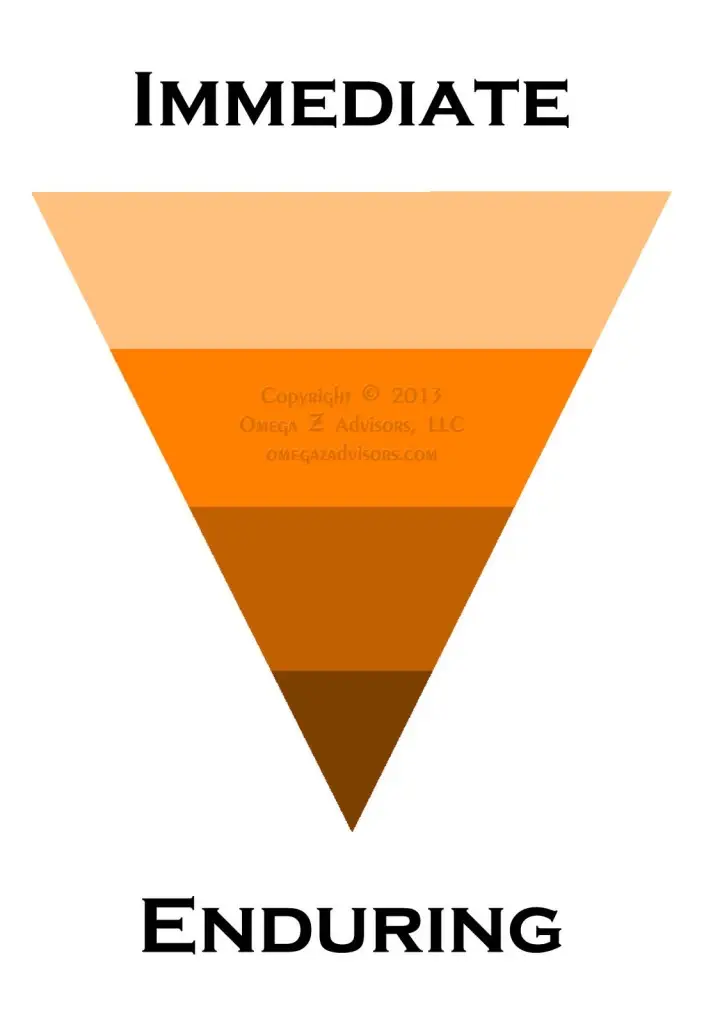Why Problems Occur (Alert #2): Immediate over Enduring
- Eight Alerts Help Us Anticipate Problems
- Why Problems Occur (Alert #1): Easy over Difficult
- Why Problems Occur (Alert #2): Immediate over Enduring
- Why Problems Occur (Alert #3): Majority over Minority
- Why Problems Occur (Alert #4): Known over Unknown
- Why Problems Occur (Alert #5): Big over Small
- Why Problems Occur (Alert #6): Same over Unique
- Why Problems Occur (Alert #7): One over Many
- Why Problems Occur (Alert #8): Demarcation over Gradient
 When problems occur or when trying to anticipate them in problem solving, I look for seven alerts. While no single one automatically creates a problem, two or three put me on alert. The second alert occurs when the immediate prevails over the enduring.
When problems occur or when trying to anticipate them in problem solving, I look for seven alerts. While no single one automatically creates a problem, two or three put me on alert. The second alert occurs when the immediate prevails over the enduring.
For instance, painting over a surface with five layers of cracked paint is quicker than scraping off the old layers first, but scraping is likely to make paint last ten times as long. The immediate-enduring differs from easy-difficult in the desire to see quick results, to take action or to resolve impatience. The immediate might require more work. Other examples include:
- Doing a job before having all the tools finishes it quicker but not as well.
- Telling is quicker than asking, but it motivates far less.
- It’s quicker to do the same way than it is to learn a better way.
- It’s quicker to congratulate an employee by email, but doing so in person has a longer lasting effect.
- Negative reinforcements get quicker results than positive ones, but they are far less motivating.
- It’s quicker to do things ourselves than it is to teach someone to help us.
- Completing a checklist is quicker than doing the tasks on the list well, but we might end up having to do them again.
- Delegating tasks immediately to subordinates is quicker than helping them prioritize, but they might become overwhelmed, demoralized and inefficient.
- Teaching employees now is quicker than waiting for them to ask, but we’ll likely have to teach them again because they won’t retain as well.
Choosing the immediate over the enduring is borrowing time. At some point, we’ll need to make our payments . . . and then we’ll wonder why we have no time.

